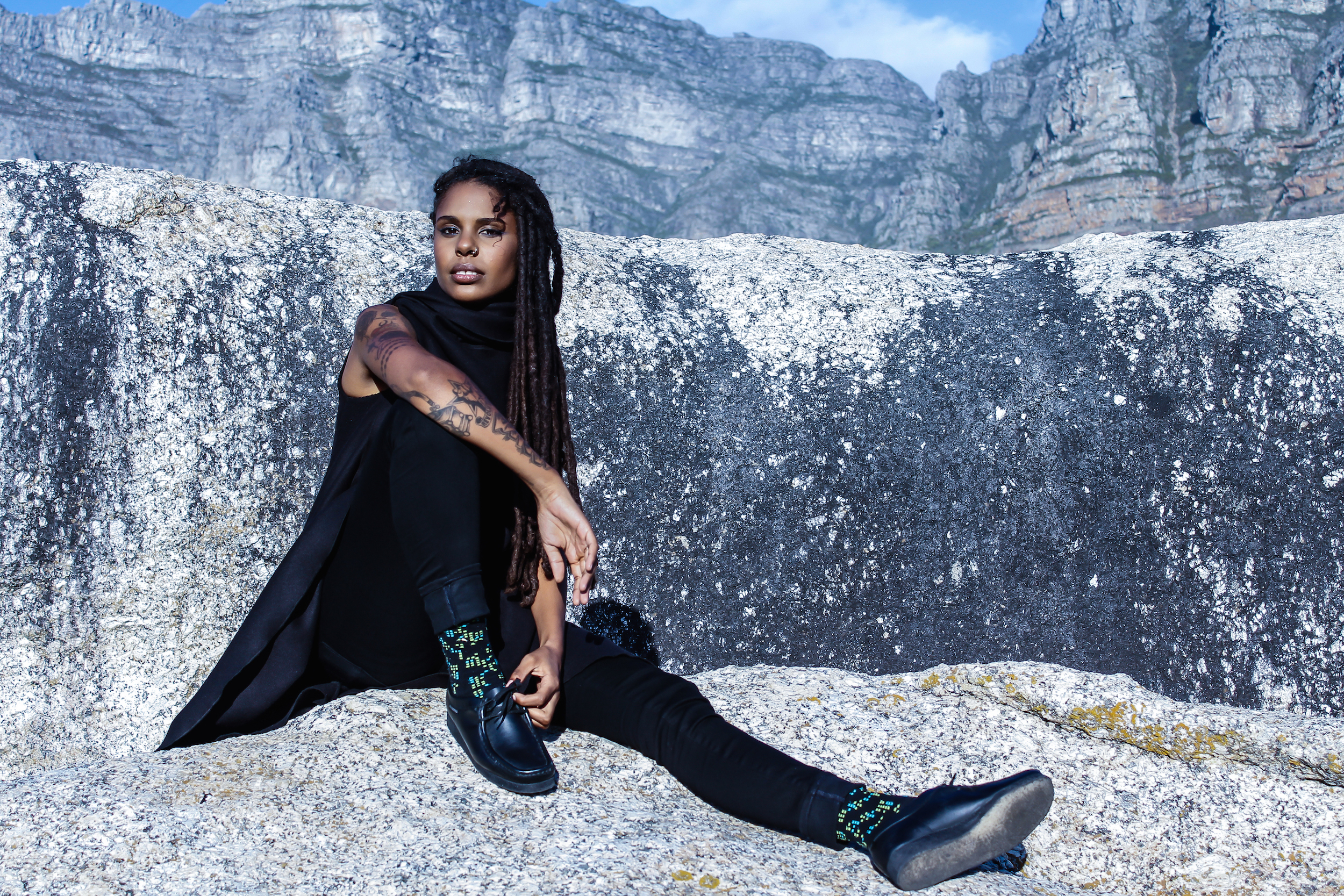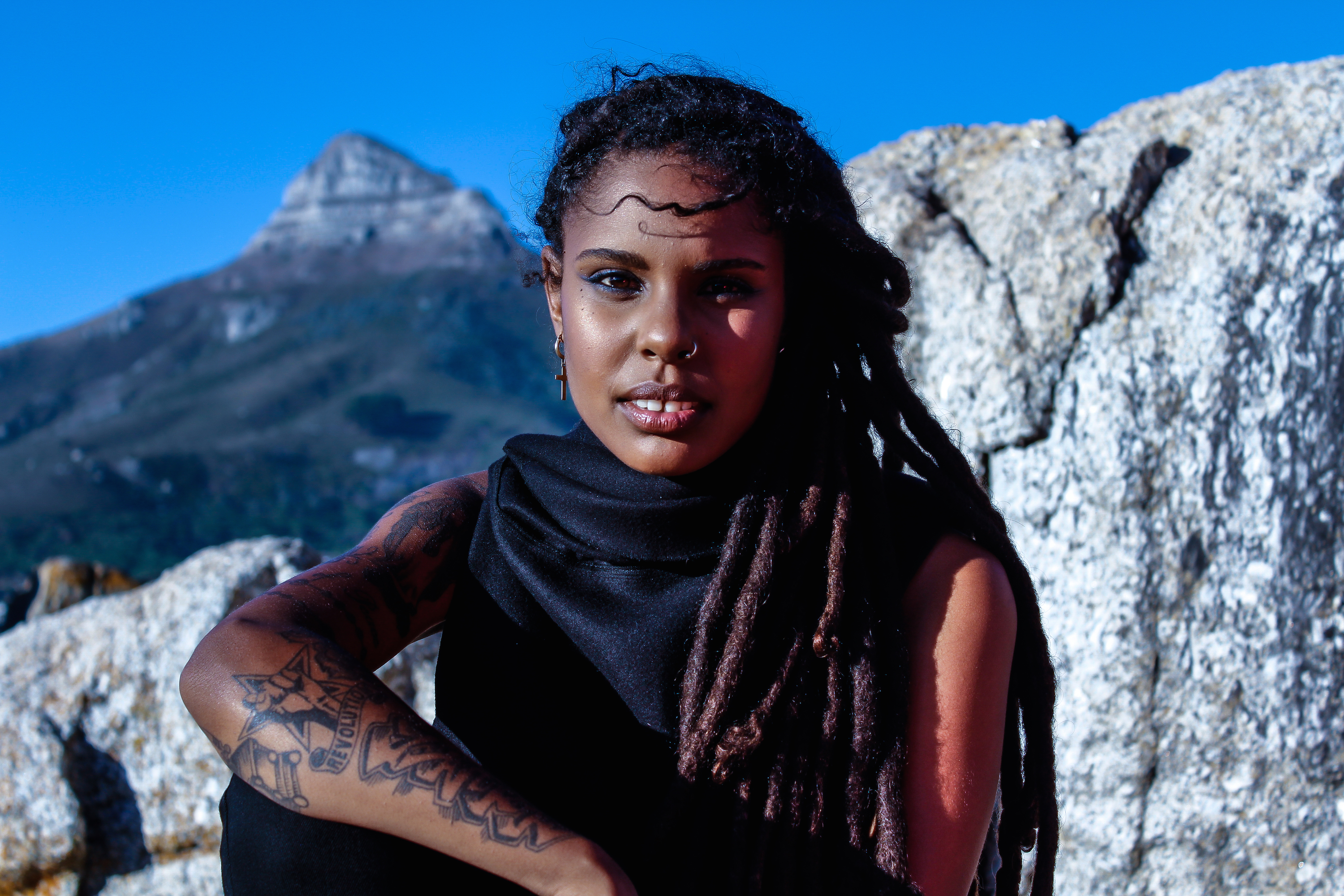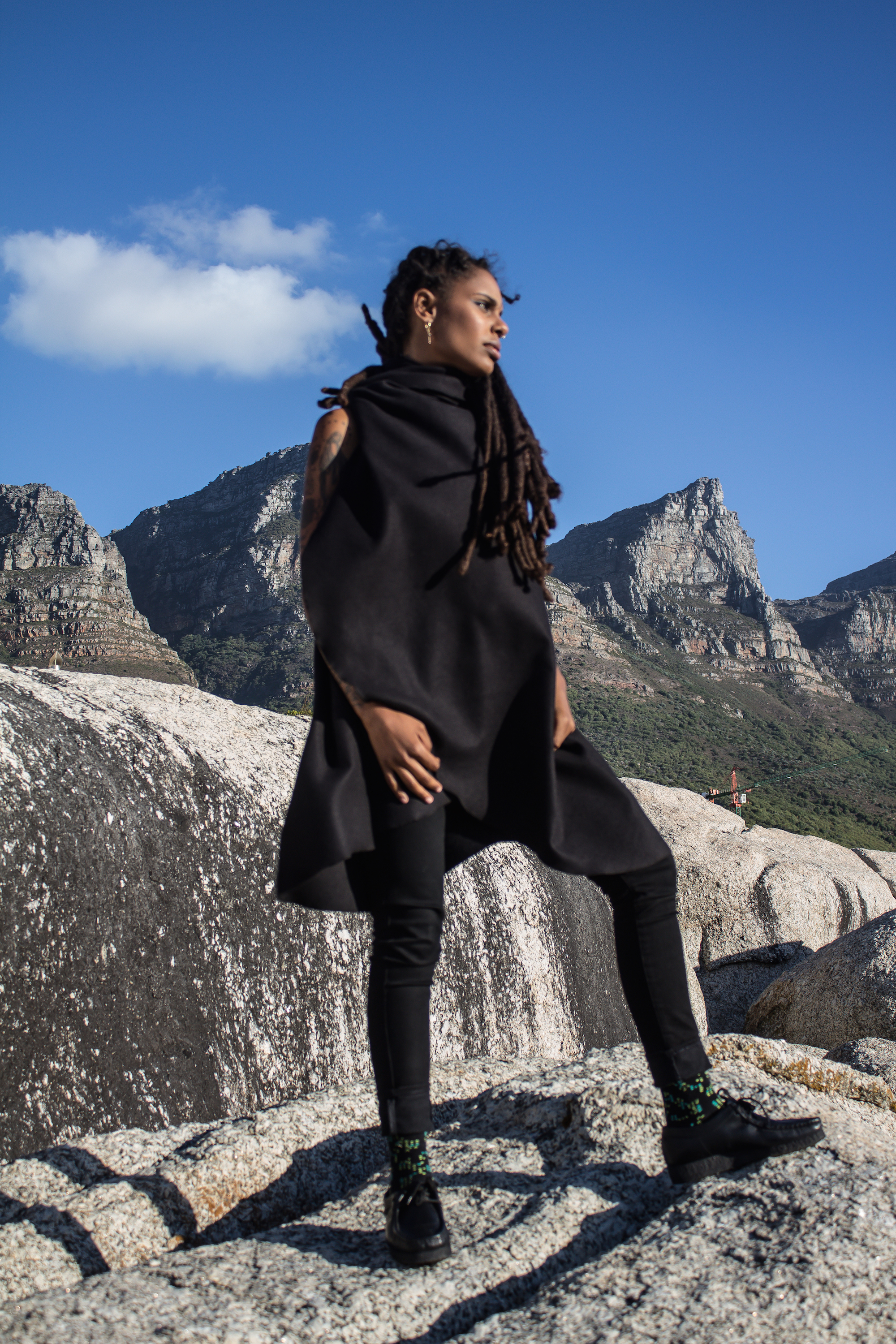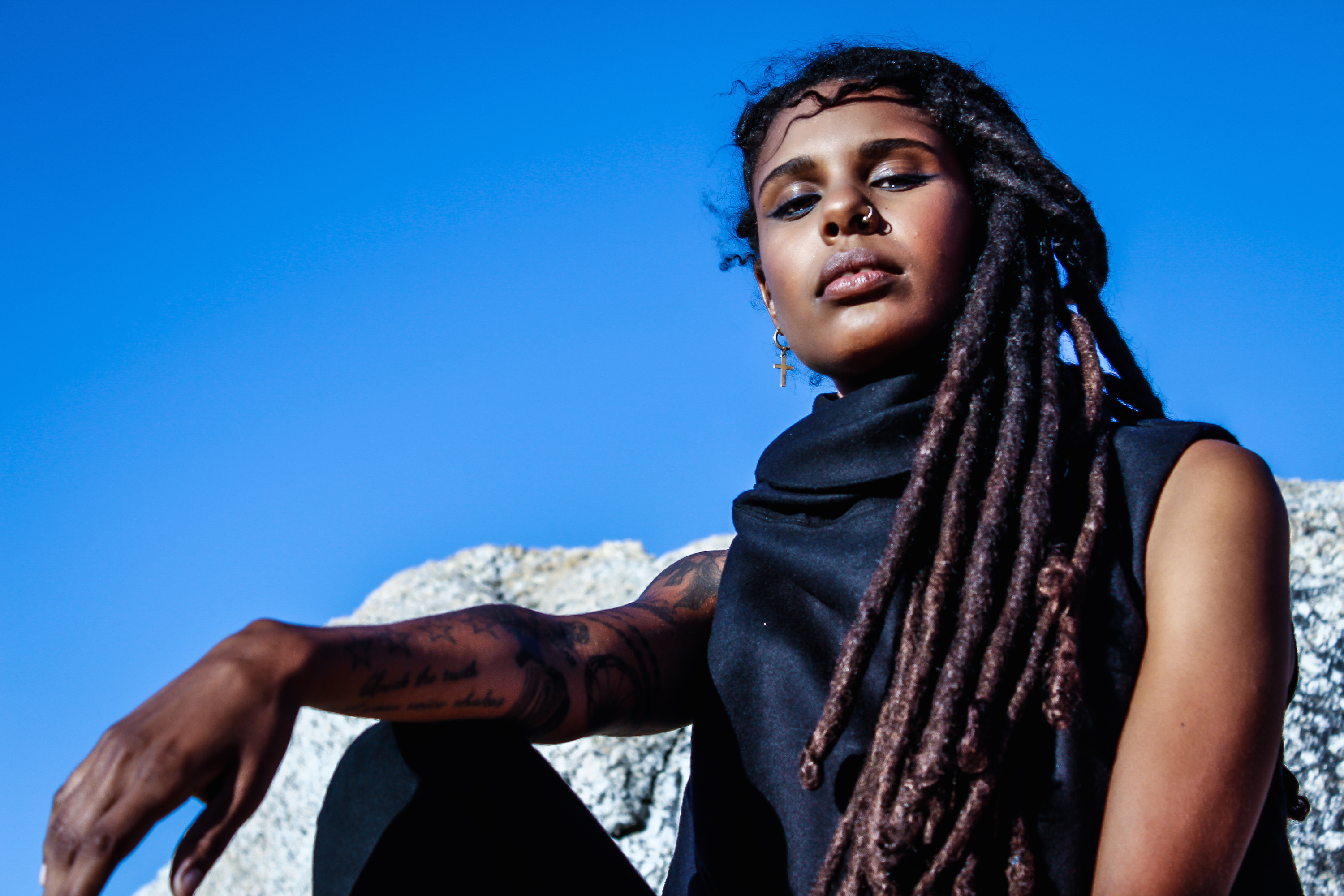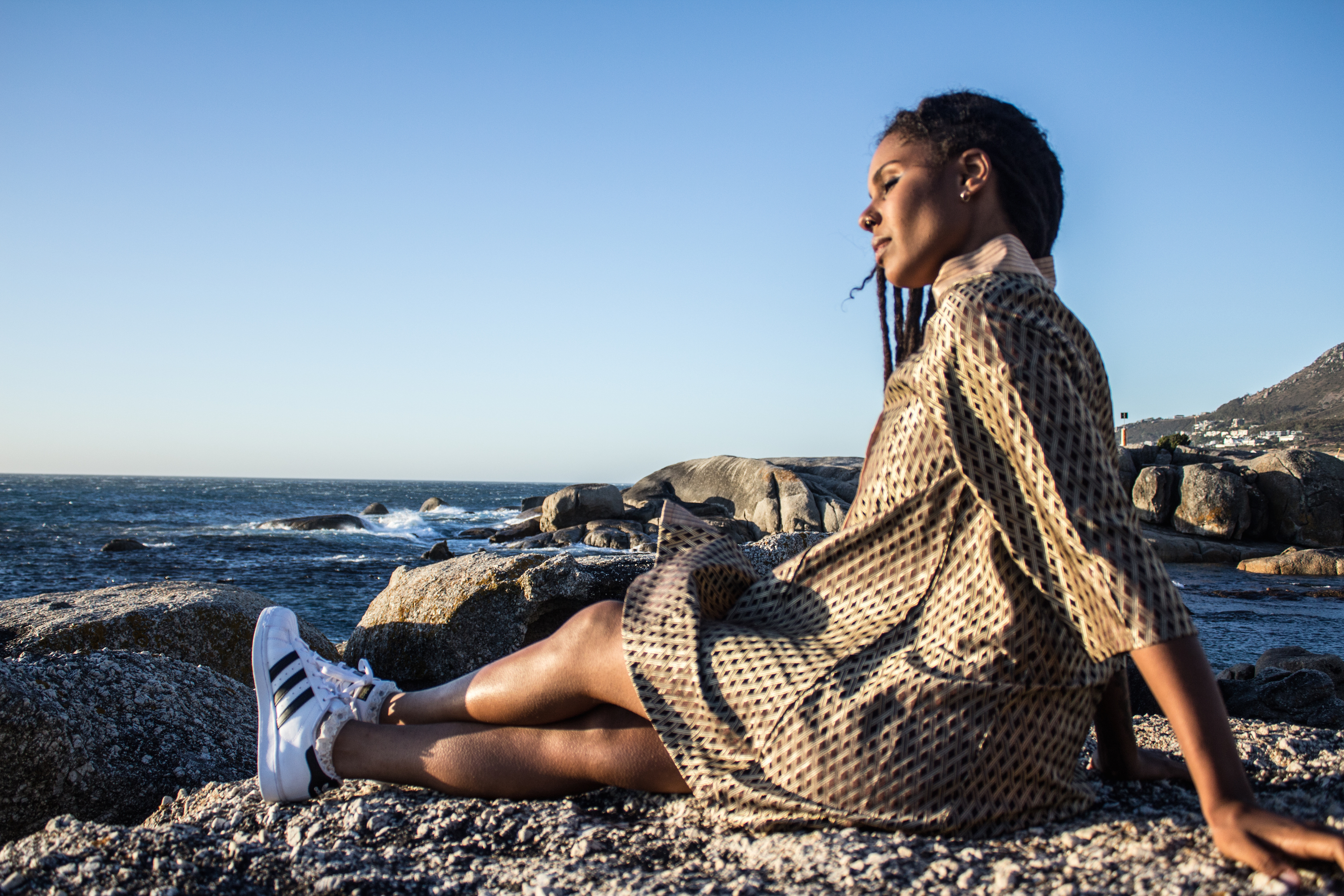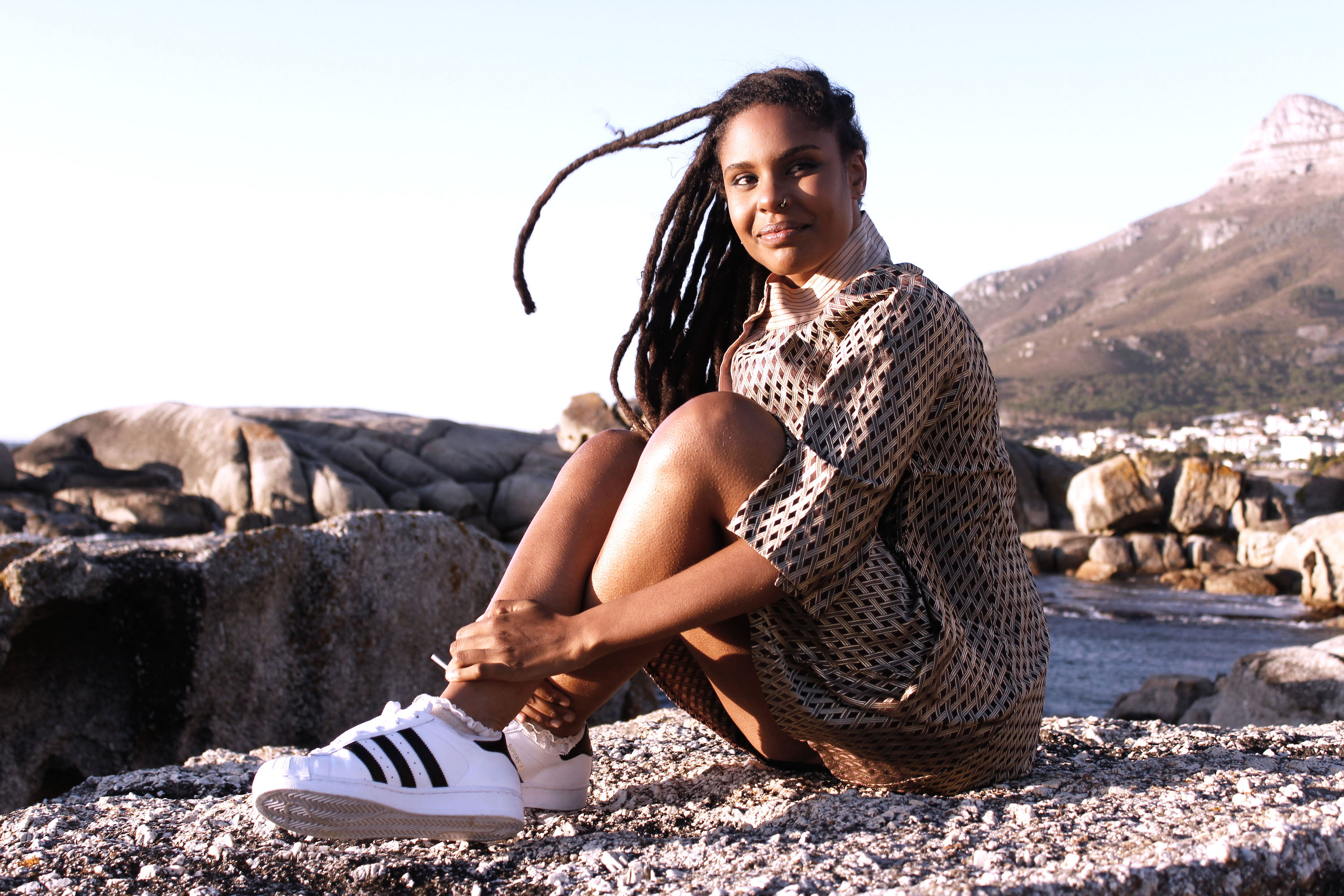Talking to Dope Saint Jude about her experience of life through music and her progressive performance art plans is at once unsettling and comforting. I have been watching her parody and parade positions of power through her music for some time – it is astounding to compare 2013’s tomboy to 2016’s femme fatale – and it appears that everything she does is governed by a heady cocktail of girlish excitement and OG hustler-mentality typical of real hip hop. Girding all of this is ethereal composure.
Power is a quiet thing, and it wafts off of her as strongly as the Onika by Nicki Minaj perfume that she swears by. As she moves away from a narrowly defined, identity-infused approach to her craft, to a more multidimensional one, we had a chat about her upcoming travels, thoughts on colonialism and indigenous peoples and what it feels like to live as an empowered black feminist.
Firstly, tell me about your upcoming travels?
I was invited to perform at Checkpoint Helsinki a contemporary art space in Finland. It’s my first time travelling with my music, and it’s so amazing that it is for an academic conference. It takes place from 14-17 April 2016 in Helsinki and Stockholm and is focused on how art and education relate to welfare states.
Wow! The Nordic countries are like parallel universes compared to South Africa, and other developing countries. Why have they asked you to perform at this event?
I know right? The project organisers are fans of Angel-Ho and myself (we worked together on Keep in Touch and performed at the Cape Town Electronic Music Festival), so I guess that was the first motivation. But then secondly, this project coincides with one that they are doing with the Chimurenga editorial collective; they have a magazine, which creatively presents Pan-African and Afro-diasporic literature, art and politics.
I want to make music that people get down to.
Angel-Ho and I also did a pop-up performance for Chimurenga’s Pan African Space Station a little while ago. According to the Checkpoint team, they wanted me involved because my ‘use of artistic forms and political impact match the conference themes’, which is very cool, but even cooler is the way that all these different elements are coming together.
Very cool. I have more questions about this conference, it seems very interesting, but before we get there, do you have plans to travel more?
YES! I’ll be performing at Les Escales festival in France in July, and schemes are in the works to line up more shows before and after that. At the moment I am concentrating on developing my first EP so that takes precedence over live shows, I mean I have to actually have stuff that I am proud of before getting ahead of myself and planning performance!
Yes, it is intriguing that you are involved at what appears to be very ‘conscious’, intellectual-type events that have strong agendas. Is this part of your agenda, to present yourself as a critical thinker?
To be honest, not really. Getting attention from avant-garde spaces is wonderful, but that is not my background. I want to make music that people get down to, but at the same time, I know that songs are also the oldest form of spell casting so I am very conscious of the inherent power involved in music making as a cultural activity.
My agenda is to channel that power in my presence and performances, in an accessible way that appeals to the big brains and people like me that want to have a dope time.
Would you say that that your balancing act between popular appeal and conscious content is a double-edged sword?
Definitely. It’s like a tightrope all the time, trying to be so many things at once. It brings to mind that Nicki Minaj interview where she’s like:
‘When you’re a girl, you have to be everything, You have to be dope at what you do, but you have to be super sweet, and you have to be sexy, and you have to be this and you have to be that and you have to be nice, and you have to – it’s like, I can’t be all of those things at once. I’m a human beeeeeing.’
On that note, tell me a bit more about the shift in your aesthetic? Has it been a natural progression or a more deliberate departure from your previously more masculine style?
Probably a bit of both. Firstly, I am growing up and growing out of being a tomboy. I have four brothers, so they definitely influenced me a lot while growing up. But I am also my mother’s only daughter, and maybe I was being a bit of rebel by avoiding her attempts to dress me up.
I appreciate the work of so many black women, from Oprah to Winnie Mandela to Serena to Brenda Fassie.
Then again, when I was performing as a drag king, I was a lot more masculine, but as I grow to be more comfortable with my body and myself, I appreciate how my developing femininity is influencing my music. It’s a lot stronger now, and it feels more natural.
Other than Nicki Minaj, who is obviously a big influence, tell me about other people that have played a big role in your growth as an artist?
As an artist, Kanye West, obviously. But as a woman, Amelia Earhart is like my philosophical role model. When I was really young I did a school project on her, and I will never forget reading about her saying, ‘women, like men, should try to do the impossible. And when they fail, their failure should be a challenge to others.’ That really moved me, thinking about equity in effort, and setting standards for other people to take up.
I appreciate the work of so many black women, from Oprah to Winnie Mandela to Serena to Brenda Fassie. There is no way I could be doing what I am doing if not for them, and my mother, obviously.
https://www.instagram.com/p/8xjKOfJcmE/
Would you say then that your position as a black feminist constantly striving to push LGBTQ rights, not only on the music scene but in socio-economic environments too, is a big part of your music and performance?
OMG OMG OMG I forgot to mention M.I.A!!! I have been studying her for the longest time; she is the reason that I am a professional. Sorry for quoting all these people, but these words articulate my feelings and help me to explain what I would usually do in a song.
No problem, tell me about M.I.A and being topical?
Well, she once complained about being treated like an infomercial for issues around the world, and how she doesn’t want it to be like that because she is truly in love with the music. I am paraphrasing here, but that resonates a lot. First and foremost I use music to be myself, and that helps me to fall in love with myself over and over as I try to make sense of the world that I live.
Given our history of colonialism, and the multitude of ways that African people are oppressed on their own land and abroad, it is so important to me to keep pushing my own boundaries.
A lot gets projected onto my image, I understand why, but I don’t want that to take away from my actual output, which begins and ends with the music I produce and perform.
I get that. Medium as the message and all that jazz. Can you describe how being an African influenced by all these American and British artists has an impact on your own sound?
Okay this is my last M.I.A. reference I promise, but she once spoke about how the West has all these preconceived ideas of a kid in Africa, in cloths singing under a tree with a stick. I was so relieved when she totally debunked that stereotype and described African music as way more progressive than music in the West.
Given our history of colonialism, and the multitude of ways that African people are oppressed on their own land and abroad, it is so important to me to keep pushing my own boundaries. I believe that if I keep developing, both my mind and my music, that it will filter into my community, my country, my universe.
That’s probably my main agenda, some kind of symbiotic development you know, Ubuntu. It’s a grossly overused word in South Africa, but it means, I am because you are.
When I think about that in terms of the work being done by the figureheads that influence me, my friends, collectives like Chimurenga (which means ‘struggle for freedom’ in Shona) I feel uplifted. I want that to be my lived experience as a rapper, as a queer person of colour, as a human. I think empowerment should be about feeling good about your future. I’m feeling pretty good.
Follow her on Twitter @DopeSaintJude
Photography by Thandie Gula-Ndebele
Make-up and hair by Rosetta Peterson

